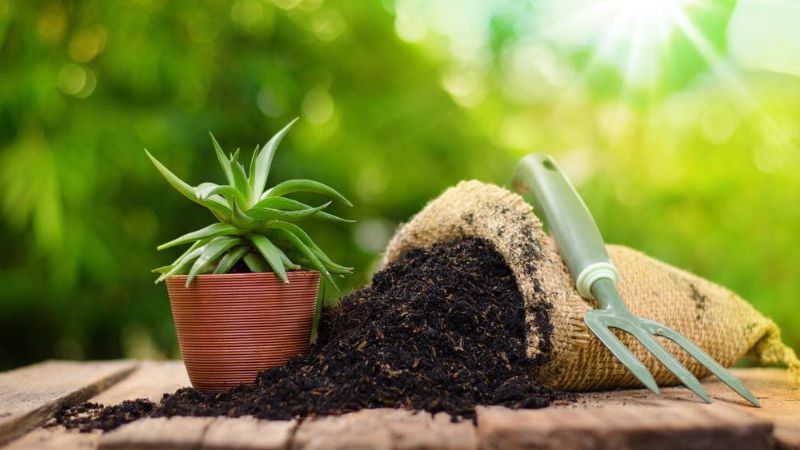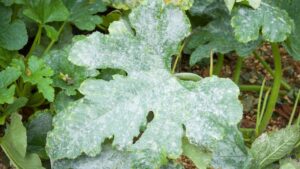Embarking on a journey to nurture a lush vegetable garden brimming with organic produce? Look no further! We unveil the 7 Best Organic Fertilizers For Vegetable Gardens that will supercharge your gardening endeavors. Harnessing the power of nature’s nutrients, these fertilizers foster robust plant growth while enriching soil health. From compost to seaweed extract, each fertilizer offers unique benefits tailored to optimize vegetable yields naturally. Dive into our comprehensive guide and discover how to cultivate vibrant, nutrient-rich vegetables sustainably. Say goodbye to harsh chemicals and embrace the eco-friendly approach to gardening with these top-notch organic fertilizers.
7 Best Organic Fertilizers For Vegetable Gardens
1. Compost
Compost stands as a cornerstone in organic gardening, renowned for its ability to enhance soil structure and fertility. Made from decomposed organic matter like kitchen scraps, yard waste, and manure, compost enriches the soil with essential nutrients such as nitrogen, phosphorus, and potassium. Additionally, it improves soil moisture retention and promotes beneficial microbial activity, creating a thriving ecosystem for plant roots. Regular application of compost contributes to healthier plants, increased yields, and sustainable soil management in vegetable gardens.
2. Bone Meal
Derived from finely ground animal bones, bone meal serves as an excellent source of phosphorus, essential for root development, flowering, and fruiting in vegetable plants. Its slow-release nature ensures a steady supply of phosphorus over time, promoting robust root growth and overall plant vigor. Bone meal is particularly beneficial for root crops like carrots, beets, and potatoes, encouraging strong root systems and improving their nutrient uptake. When incorporated into the soil before planting, bone meal fosters healthier growth and higher yields in vegetable gardens.
3. Fish Emulsion
Fish emulsion, a byproduct of fish processing, offers a rich source of nitrogen, an essential nutrient for leafy green vegetables and overall plant growth. This organic fertilizer is easily absorbed by plants, providing an immediate nutrient boost and promoting lush foliage. Fish emulsion also contains trace minerals like calcium, magnesium, and sulfur, which contribute to plant health and vitality. Regular application of fish emulsion fosters vigorous growth, enhances the flavor of leafy greens, and supports sustainable gardening practices in vegetable gardens.
4. Seaweed Extract
Harvested from seaweed or kelp, seaweed extract is a natural fertilizer packed with an array of beneficial nutrients, vitamins, and plant hormones. It enriches the soil with essential minerals like potassium, magnesium, and calcium, promoting strong root development, drought resistance, and overall plant resilience. Seaweed extract also contains cytokinins and auxins, hormones that stimulate plant growth and increase flower and fruit production. By enhancing soil fertility and plant health, seaweed extract contributes to thriving vegetable gardens with improved yields and resistance to environmental stressors.
5. Chicken Manure
Chicken manure is a potent organic fertilizer prized for its high nitrogen content and balanced nutrient composition. Rich in nitrogen, phosphorus, and potassium, chicken manure provides essential nutrients for healthy plant growth and development. When aged or composted properly, it becomes a valuable soil amendment that improves soil structure, enhances nutrient availability, and promotes beneficial microbial activity. Incorporating chicken manure into vegetable garden beds before planting boosts soil fertility, encourages vigorous growth, and fosters abundant harvests of nutrient-dense vegetables.
6. Worm Castings
Worm castings, sometimes referred to as vermicompost, are the nutrient-rich waste products that earthworms make when they break down organic materials. These castings are a powerhouse of beneficial nutrients, enzymes, and microbial activity essential for soil health and plant growth. Rich in nitrogen, phosphorus, potassium, and beneficial microbes, worm castings improve soil structure, increase nutrient availability, and enhance plant resilience to pests and diseases. Incorporating worm castings into the soil or using them as a top dressing around plants enriches the soil ecosystem, leading to thriving vegetable gardens with superior yields and quality produce.
7. Blood Meal
Derived from dried animal blood, blood meal serves as a potent organic fertilizer rich in nitrogen, essential for promoting lush foliage and vigorous growth in vegetable plants. Its fast-acting nature provides an immediate nutrient boost, particularly beneficial during the early stages of plant growth or when plants show signs of nitrogen deficiency. Blood meal also contains iron, a micronutrient vital for chlorophyll production and overall plant health. When applied judiciously, blood meal supports healthy plant growth, enhances leafy vegetable production, and contributes to the overall success of vegetable gardens.
Conclusion
Elevate your vegetable gardening experience with our selection of the finest organic fertilizers. By enriching soil fertility and promoting plant vigor, these natural solutions pave the way for bountiful harvests. Embrace sustainable practices and nourish your garden with nutrient-rich compost, seaweed extract, and more. Let nature’s bounty unleash the full potential of your vegetable patch, while contributing to a healthier environment. With the right organic fertilizers at your disposal, cultivating thriving vegetable gardens becomes not just a goal, but a delightful journey towards sustainable living.
FAQs
What are the benefits of using organic fertilizers?
Organic fertilizers enrich soil structure, promote microbial activity, and provide essential nutrients for plant growth. They improve soil fertility sustainably without harmful chemicals, fostering healthier plants and minimizing environmental impact.
How often should organic fertilizers be applied in vegetable gardens?
The frequency of application depends on factors like soil quality, plant needs, and fertilizer type. Generally, organic fertilizers are applied 2-3 times per growing season, following package instructions or expert recommendations for optimal results.




